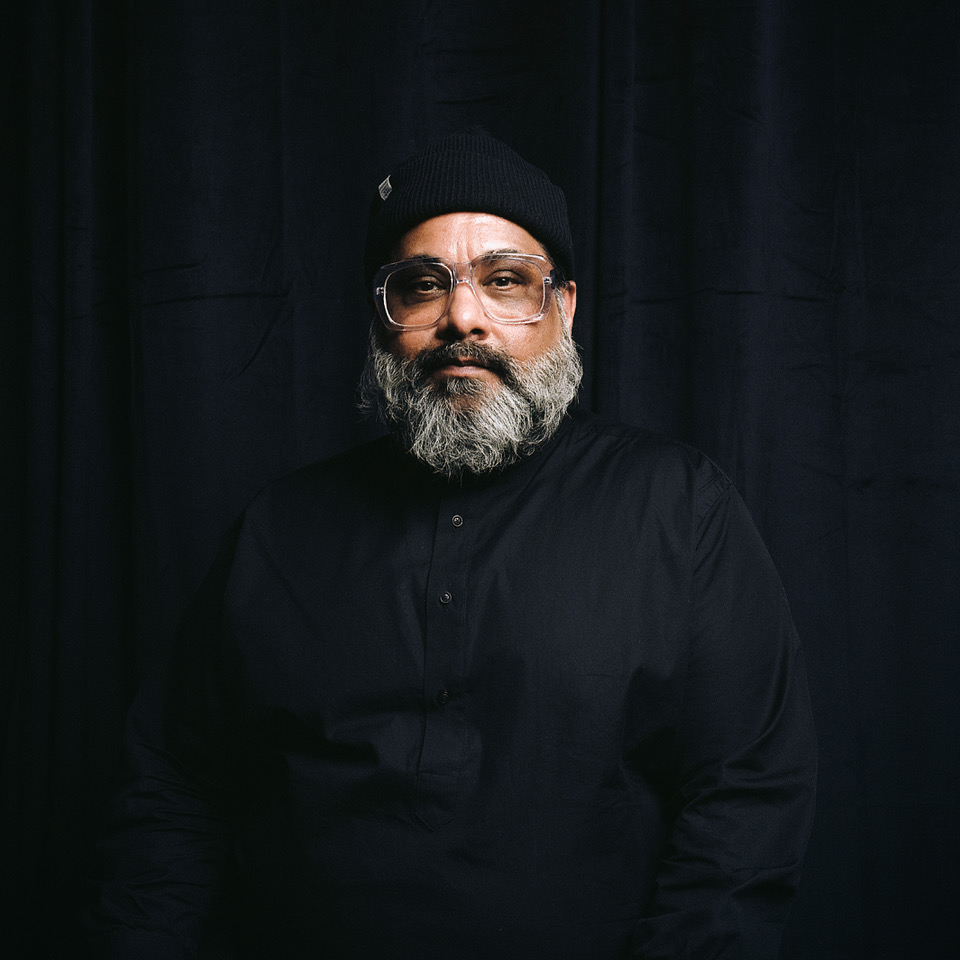In the world of documentary filmmaking, Joseph Patel has mastered the art of uncovering the humanity behind musical legends. From a young music journalist scribbling for a friend’s skate zine to an Academy Award winner for “Summer of Soul,” Patel’s journey mirrors his storytelling philosophy: patience, passion, and profound respect for the culture he chronicles.
His latest triumph, “SLY LIVES! (aka The Burden of Black Genius),” reunites him with collaborator Questlove to explore not just the meteoric rise of Sly Stone, but the weight of Black excellence itself. The film, now streaming on Hulu, reframes a familiar narrative through a lens of empathy, examining how success can become its own burden for Black artists. Through intimate conversations with legends like D’Angelo and André 3000, Patel and Questlove piece together a story that resonates far beyond one man’s journey.
In a candid conversation for Star Studio, Patel opens up about his creative partnership with Questlove, the delicate art of telling Sly’s story, and why loving the work remains his guiding principle. His approach to documentary filmmaking isn’t just about preserving history—it’s about understanding the souls behind the genius.
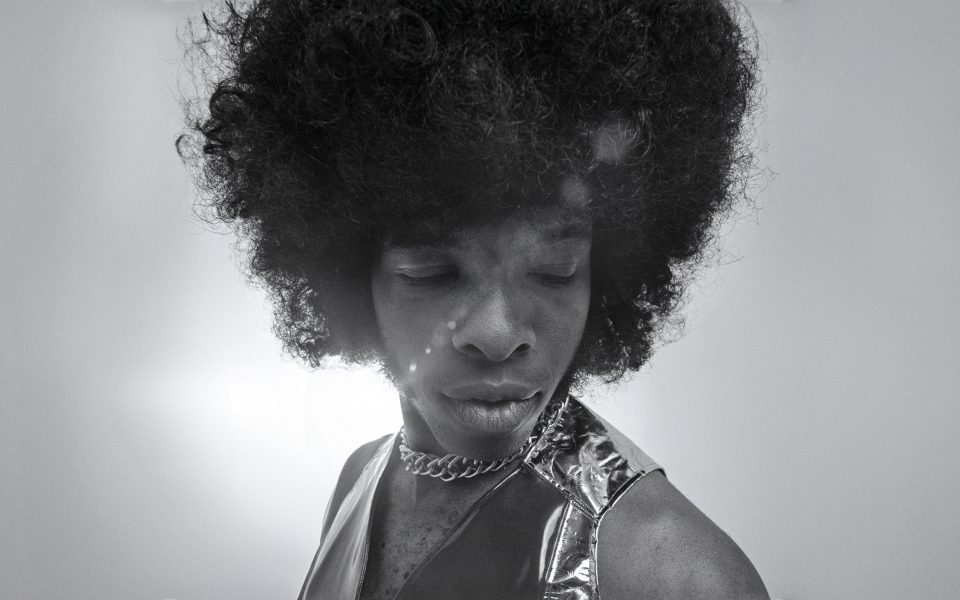
You have captured and chronicled the voice and culture of the creative community. Why?
That’s a great question. I think that, I have such deep respect for the art and artistry that has helped shape my worldview. It’s really through music. I became obsessed with music as a little kid, and, you know, poring over album covers, liner notes, lyrics, and the inserts is how I learned about the world. It’s how I came to shape my worldview, how I learned about literature and photography, and the power of art and community. It’s how my politics were shaped.
And so, I have nothing but deep reverence for art and the people who make it. As I’ve gone on my journey as a storyteller, it really just is based on that foundation. I mean, I started out in high school writing for my friend’s skate zine.
Then later, in college, with the radio show, I was still writing for little independent magazines because I was just really intrigued by this idea of being able to talk to my favorite artists and discover their creative process.
And to some extent, it’s the same thing I’m doing now. It’s at a, you know, a little higher stakes, a little higher level, but the essence is the same. So, yeah, it’s something that I think has been a lifelong pursuit for me.
You’ve put in the work and collaborated with beautiful souls who share your vision of seeing the divine in others. What was it like to be on stage and hold a trophy that recognized you for bringing hidden stories to light?
Surreal. But honestly, I never even considered that a possibility. It’s not even anything I dreamt of. Like, especially when I started my career, I didn’t dream of a moment like that. I didn’t know it was possible. But even after Summer of Soul, we really just made Summer of Soul because we wanted to make something that we liked, that our friends liked, and maybe our parents liked too.
My favorite moment—because we had to finish editing that film during COVID—was when we were done with the film. Questlove and I, and he brought Ezra Edelman to the screening, watched it for the first time on a big screen in a theater. We went to the Dolby Theater in Midtown Manhattan.
And we watched it front to back, and it was just like, yeah, we made a cool movie. That was my favorite moment.
The Oscar is nice. All the awards and recognition are nice. But it’s not why we did it. It’s not anything that drove us. We just wanted to make something that we, ourselves, would want to see out in the world.
And really, something that could last for a long time—last forever. That, to me, is the greater achievement.
With Sly being Sly, what was it like to tell his story? And how did you choose who else to include, like Three Stacks commenting on his energy?
None of this happens without Questlove. It’s his story to tell.
I think how we work well together is that he has a story he wants to tell, and it’s my job to figure out how we’re going to tell it. In our very first meeting about how we were going to tackle the Sly Stone story, we talked about treating his story with a lot of empathy.
A lot of people had glamorized the rise and fall of Sly, but they glamorized the fall. We wanted to treat his story with a lot of empathy. But also, I think where Amir and I—I’ll use Amir and Questlove interchangeably—where we thrive is in asking, “How do we tell a specific story that’s really about a bigger idea?”
Summer of Soul is ostensibly about a music festival in Harlem in 1969. But really, it’s about this bigger idea of memory and history—about Black history being American history.
So, when we first met about Sly, it was like, well, we know this should be a story about Sly and the Family Stone and about Sly Stone, and we want to treat it with a lot of empathy. But what’s the bigger idea?
I think Amir had been really ruminating on this for a lot of years—this idea that when Black artists experience success, it sometimes puts this burden on them, where it causes them to self-sabotage.
It’s something Amir went through himself after the Oscars. He wondered, “Will my bandmates treat me the same? Will Tariq treat me the same?” Tariq being Black Thought, his partner in The Roots.
“Did I deserve this?” There was a feeling of imposter syndrome, of shame, of guilt that he was experiencing.
And he looked around at his peers, and he saw the same thing. He was the drummer in D’Angelo’s band on the Voodoo tour when D’Angelo found it harder and harder to come out on stage. Every night, he had to be in perfect physical shape, take his shirt off, and perform How Does It Feel to a room full of screaming women.
He saw what D’Angelo went through in struggling with that idea. And so, I think it had been on his mind for a while. So, we sort of looked at that bigger story.
That’s where the subtitle comes from. It’s a story about Sly, but it’s also about this burden of Black genius. And we don’t have an answer for it. We wanted to explore it.
Everybody in the film was chosen for a reason. We wanted to tell Sly’s story with a lot of empathy. In an ideal world, we could talk to Sly and have him be really reflective of these moments in his career that were pivotal. But we didn’t have access to him like that because of his health.
And even if we did, would he be reflective in that way? Probably not. Most people aren’t. But we did have access to D’Angelo, who went through something similar. We had access to André 3000, who faced something similar and actually chose a different path. Everyone wants André to rap, but he doesn’t want to. Rather than force himself to do something he doesn’t want to do—or, as Sly puts it in the film, when he describes himself as being trapped doing what he wants to do—André decided to pick up the flute. And he’s like, You guys are gonna have to deal with that.
You work with Amir—Questlove—but what are you also saying to those we’ve lost to their genius, who can’t get their flowers now?
Yeah, I mean, that’s sort of the larger point. We end the film with this montage of Black artists through time—Billie Holiday, John Coltrane, Jimi Hendrix, Prince—as a way to nod to those who didn’t have the opportunity to understand what they were going through, to receive their flowers.
And look, truth be told, when we started on this film—when you’re talking about someone who’s 81 years old, as Sly is now, with a lifetime of drug addiction behind him—he’s clean and sober now—we weren’t sure if he would even still be with us physically by the time we finished the movie.
I’m glad that he’s still with us. I’m glad—he watched the movie last night, from what I understand, and loved it. We have that opportunity to give him his flowers. But we also wanted viewers to leave the film with the feeling that we need to give empathy and grace to these artists who give us so much.
We can’t change the past, but maybe we can reframe the past. And maybe we can also reframe how we treat these artists going forward.
For you, beyond your own genius—what’s it like to know that you now have to create another movie for the world, another story to produce? And what’s it like even knowing that you and Quest now have capacities and worlds that you may not have ever seen, but now you know exist for sure?
Yeah, I mean, look, I humbly wouldn’t call myself a genius. I just love the work.
Let me do that part, my brother. People can sabotage their work. People can be somebody that somebody doesn’t want to work with. That’s an easy thing in entertainment, and half the genius is being able to get along with others.
Yeah, that’s true. I mean, I love the work. And I think collaborating with Amir is a thrill for me for a couple of reasons. One, he’s one of my musical heroes. How often do you get to work closely with a musical hero of yours?
I met Amir in 1996 when I was a music journalist writing about The Roots. From the first moment we met, we hit it off because Amir is a nerdy music journalist cloaked in the disguise of a talented musician.
He loves knowledge and stories. And more than that, he likes to share those stories. Between the films, the books, and the podcast, he’s not a gatekeeper. He wants to share these stories and his knowledge with the world. And that’s rare. Unfortunately, that’s rare. I really respect that about him and appreciate that about him.
And I think, for us, he loves the work too. Being able to work together—he trusts me, and I have such a thrill helping bring his vision to life.
We’re both rooted in the respect we have for these artists and for these stories, but also just in the desire to tell these stories and share them with as many people as possible.
As a producer, what were the three or four pieces that, once you put them together, you were amazed and said, “That actually worked”?
I love that bite because it’s André. It taps into so much, and he knows it. He knows it from lived experience.
It’s like when you have that much energy that you’ve given and also received, when you’ve been that vessel, and you stop—where does that go? That really is the introduction of the section where Sly fills that void with drugs and mischief.
And, I thought that was a great bite. Again, from lived experience—he’s been on stage with Outkast, playing stadiums, and then he stopped. It’s like, Where does it go?
One of the scenes I love—my favorite scene in the movie—is Jimmy Jam and Terry Lewis talking about Thank You (Falettinme Be Mice Elf Agin) and how they sampled it for Janet Jackson’s Rhythm Nation. I love that scene for a lot of different reasons. But one is because Jimmy and Terry are geniuses, and they were directly influenced by Sly.
Here, they’re telling a story that—even if you know Rhythm Nation sampled Sly, and most people don’t—but even if you do, the way the story is told is great.
I love how that scene came together because Amir—we knew we wanted to interview Jimmy and Terry. But Amir was like, Interview them separately. He’s like, If you have them together, Jimmy will do all the talking. Terry won’t say anything. And he’s like, I’ve talked to Terry on his own, and he has a lot to say. So that was the first inspired idea.
We interviewed them separately, two weeks apart, but they told us the same story, beat by beat. That’s why we were able to—our genius editor, Josh Pearson, was able to cut back and forth between them.
But the other reason I love that scene is from when the song starts on The Andy Williams Show performance, and then when it goes to Larry talking about the bassline, how he’s thumping and plucking, and we show a demo of him doing that from our interview.
Then, into the sample story of how they sampled that song—when they were at the restaurant, and they heard it in the speakers of the restaurant—to when they sample it, to when it goes to Rhythm Nation, and then back to Thank You (Falettinme Be Mice Elf Agin) on The Dick Cavett Show.
All of that scene is in time. The song never loses the beat.
And that’s because Josh Pearson, our editor, is an amazing editor but also a musician. He understands rhythm, beat, and timing. That scene is immaculate—not just for its storytelling, but also underneath the hood. It’s perfectly in time, and you never lose the beat.
I just think that’s something five people in the world may recognize. But for those five people, it’s going to be like, Wow.
And I think that’s very much symbolic of how we like to make stuff. We want, whatever your point of entry into the story—whether it’s superficial or really nerdy deep down—we want to be able to wow you.
What would you tell your younger self and those younger writers and influencers who have capacities you didn’t have when you started?
That’s a really, really important question. A really deep question.
I think what I would tell my younger self is a lot different than what I would tell these kids.
I would tell my younger self: Keep going. It’s gonna all work out.
I went to college with friends who found success right after they got out, and I thought, It’ll never happen to me. I’ve taken a long time to get here, but through it all, I loved the work.
And I never lost that passion for the work.
I think that’s what I would tell younger students: You have to love the work.
Watch as much as you can. Talk shop about your craft as much as you can.
Ask questions and remain curious. But you have to love the work.
You don’t have to have an expensive camera to tell a good story—you can do it on your iPhone. A good song is a good song, whether it’s being played with a guitar or with a full band.
And I think that’s really important. The tools will come, but the story is key.
You just have to love the work.
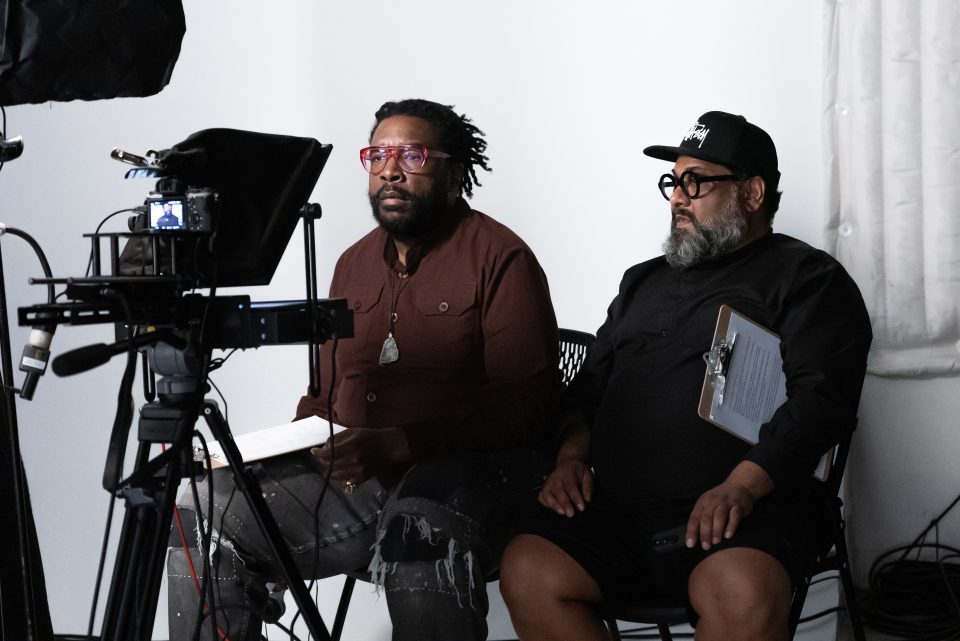
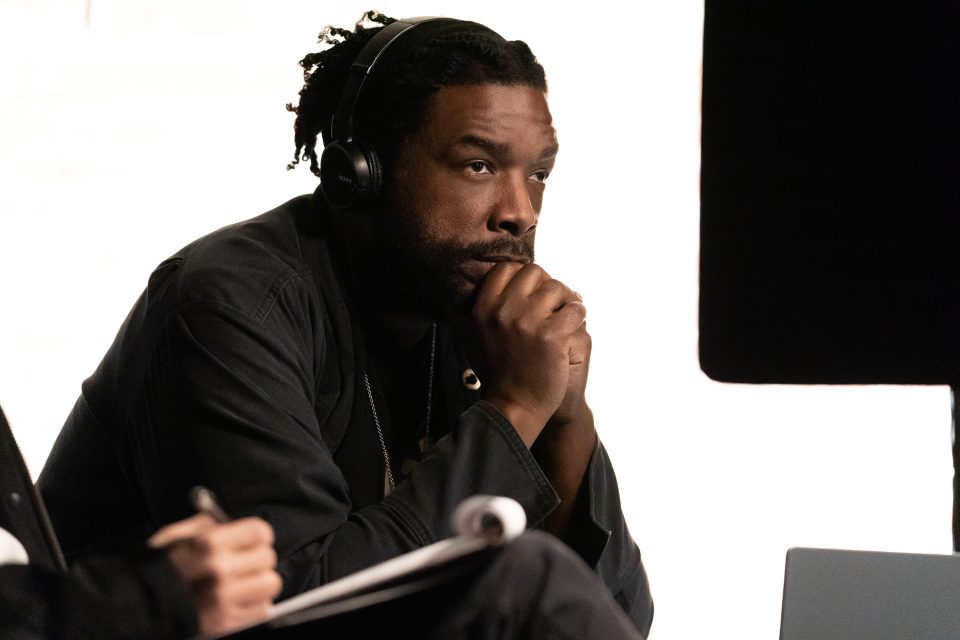
AHMIR “QUESTLOVE” THOMPSON (DIRECTOR & EXECUTIVE PRODUCER)
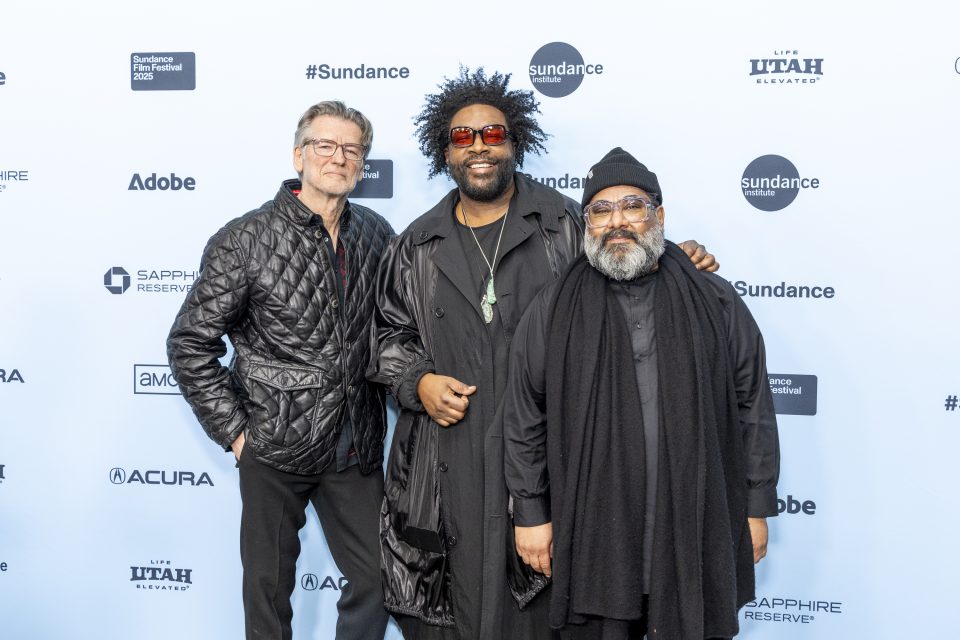
DERIK MURRAY (PRODUCER), AHMIR “QUESTLOVE” THOMPSON (DIRECTOR & EXECUTIVE PRODUCER), JOSEPH PATEL (PRODUCER)
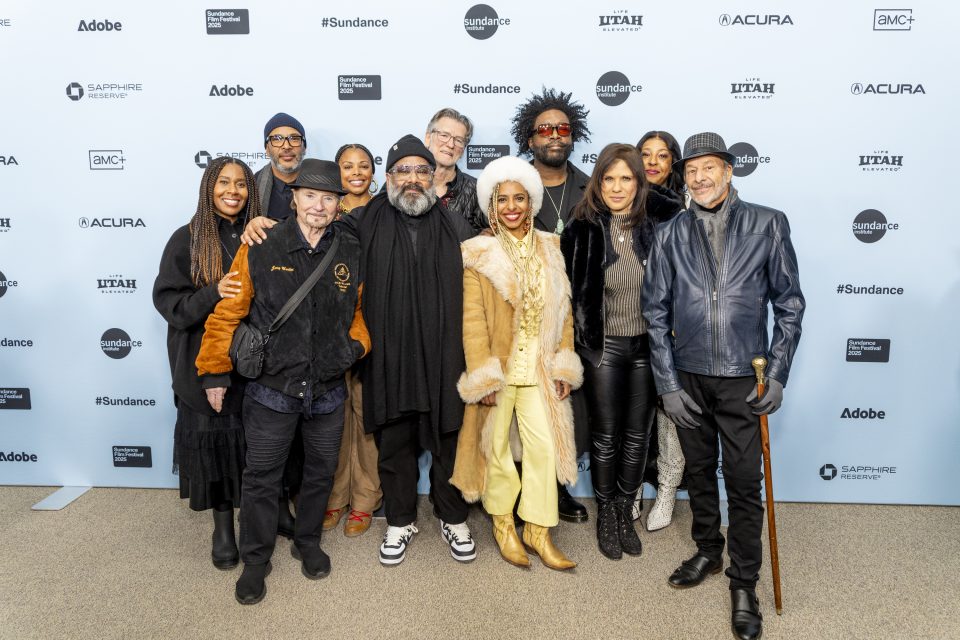
TARA DUNCAN (PRESIDENT, ONYX COLLECTIVE), SYLVESTER STEWART JR., JERRY MARTINI, JIHAN ROBINSON (VP, DOCUMENTARY FILM & SERIES, ONYX COLLECTIVE) JOSEPH PATEL (PRODUCER), DERIK MURRAY (PRODUCER), NOVENA CARMEL, AHMIR “QUESTLOVE” THOMPSON (DIRECTOR & EXECUTIVE PRODUCER), ARLENE HIRSCHKOWITZ, PHUNNE STONE, GREG ERRICO
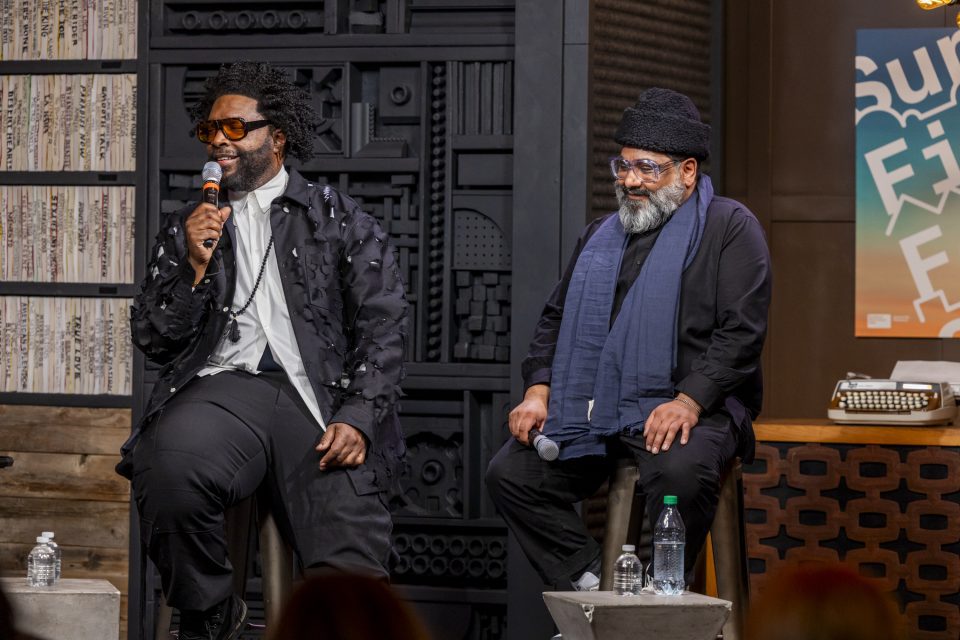
AHMIR “QUESTLOVE” THOMPSON (Director & Executive Producer), JOSEPH PATEL (Producer)
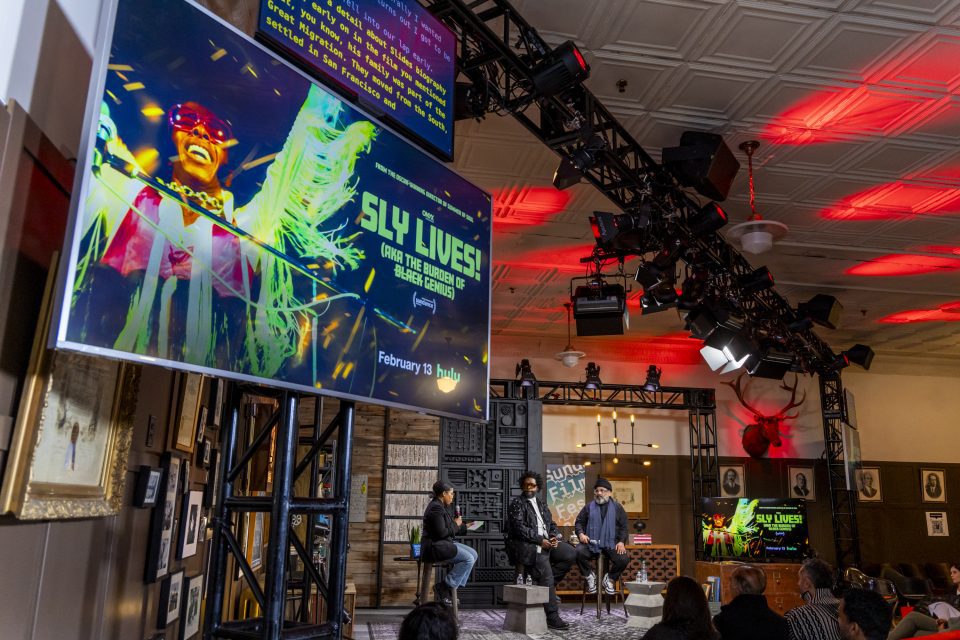
BROOKE MARINE, AHMIR ÒQUESTLOVEÓ THOMPSON (Director & Executive Producer), JOSEPH PATEL (Producer)
